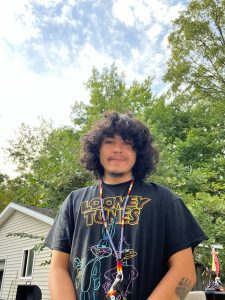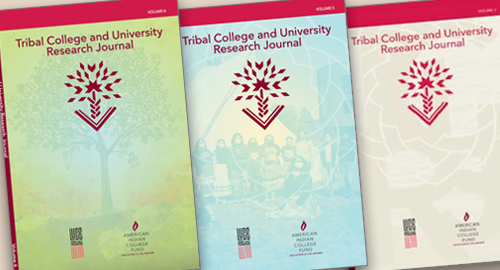Anishinaabe culture has a great amount of influence on its community. The Saginaw Chippewa Tribal College (SCTC) supports its students by embedding culture in all aspects of its academic and non-academic programs. SCTC acknowledges the values of its Seven Grandfathers, known as the Seven Grandfather Teachings, throughout programming by applying these values to increase connections with students. SCTC’s high school equivalency (HSE) program recognizes that one of the Seven Grandfather Teachings, Aakwa’ode’ewin (bravery), is displayed momentously by its HSE students. These students are brave enough to return to a program and seek guidance with their education journeys, and SCTC’s program recognizes and honors each of them for their bravery.
Akiiwaande is a SCTC HSE student who arrived on campus interested in learning more about the Anishinaabe culture. He indicated several obstacles prevented him from attending SCTC, but he knew he had to obtain his HSE before he could focus on college courses. He signed up for and completed his first HSE test at SCTC. This was a huge step for Akiiwaande: He didn’t know what to expect from the program, the pre-testing, or the outcome of his first official test.

Akiiwaande Sheahan, SCTC Student
Akiiwaande was eligible to complete and take his first official test a few short weeks from beginning the program and was surprised to learn he had passed his first test. The amount of confidence he gained from the accomplishment gave him the motivation that he needed to continue .
SCTC’s HSE program was designed to be flexible to fit every student’s schedule, helping Akiiwaande complete his HSE certification. He said, “I was able to complete this program due to the flexibility and being able to log in when I had free time helped me get my diploma.”
Akiiwaande is now in his first semester of college. He plans to learn more about the culture and Ojibwe language. He is excited to take more courses at SCTC next semester. His future dream is to become a professor and teach other people about Ojibwe culture and language.
Many people influenced Akiiwaande in his journey to seek his HSE diploma. He said he is thankful for his mother Carla, who was always supportive and involved in his decision making. His sister Leah helped him stay on track by making sure he got to his appointments for testing. And finally, he said the faculty and staff at Saginaw Chippewa Tribal College provided him with encouragement and guidance through his HSE journey and encouraged him to enroll in college courses.










